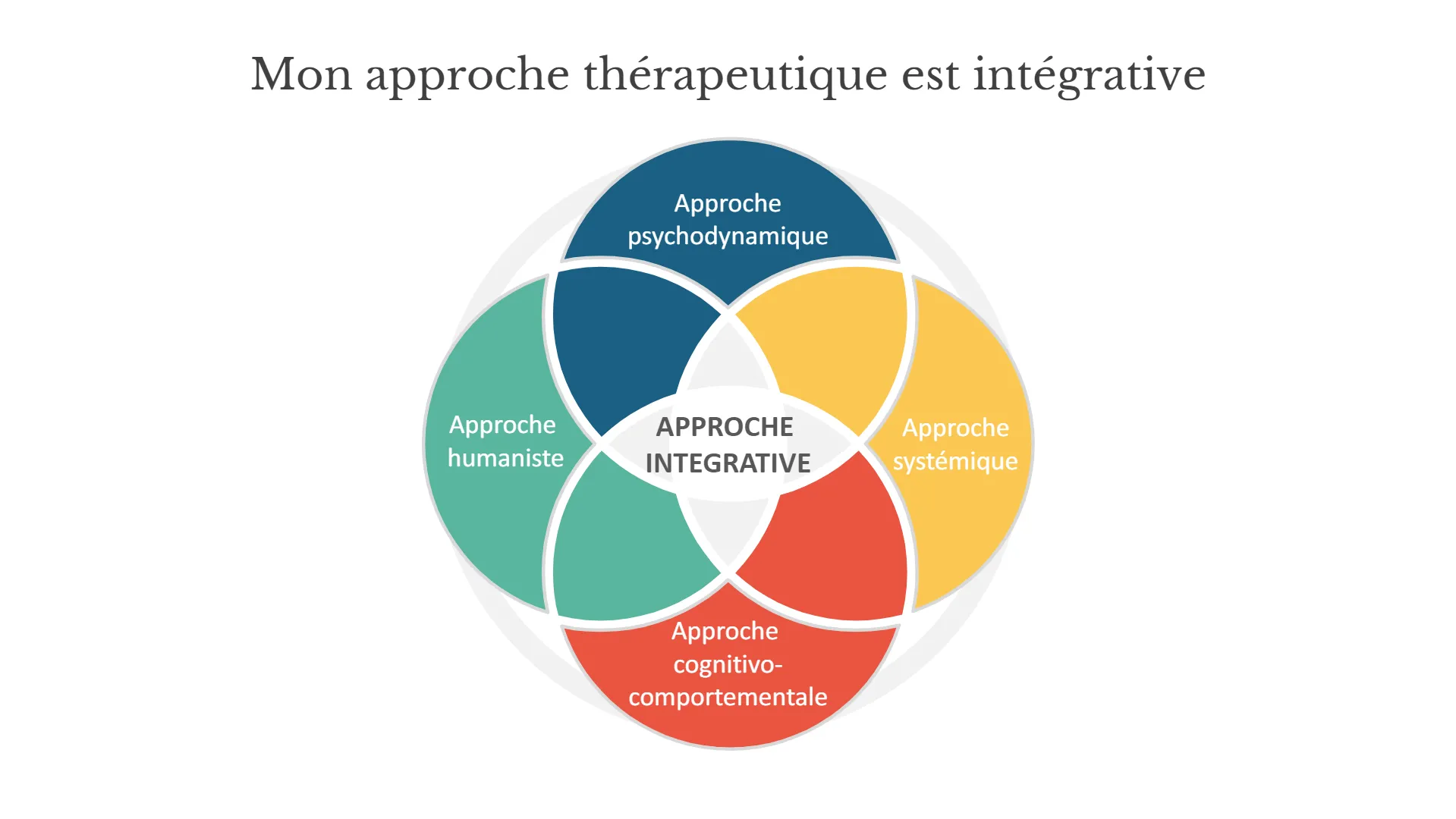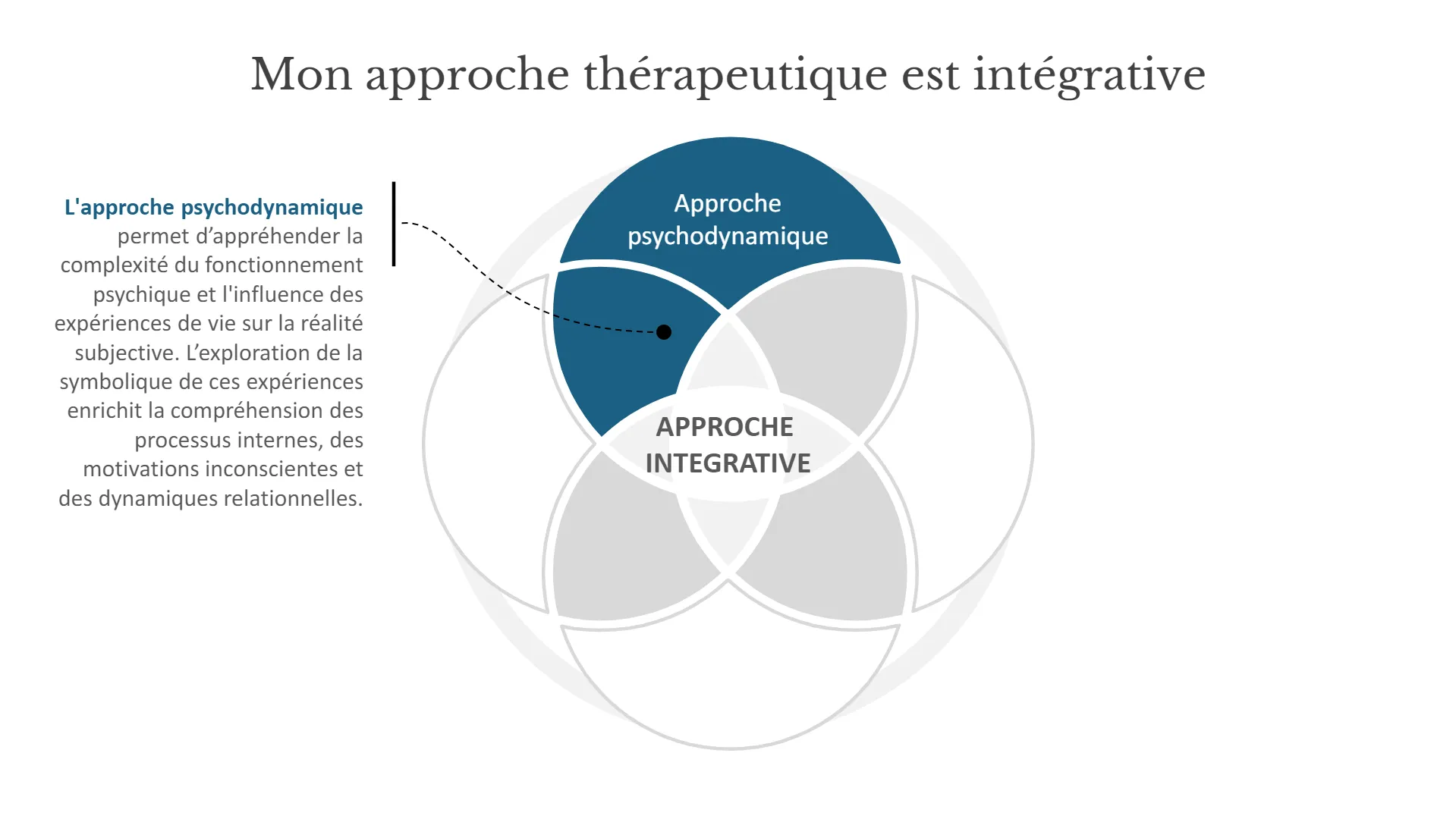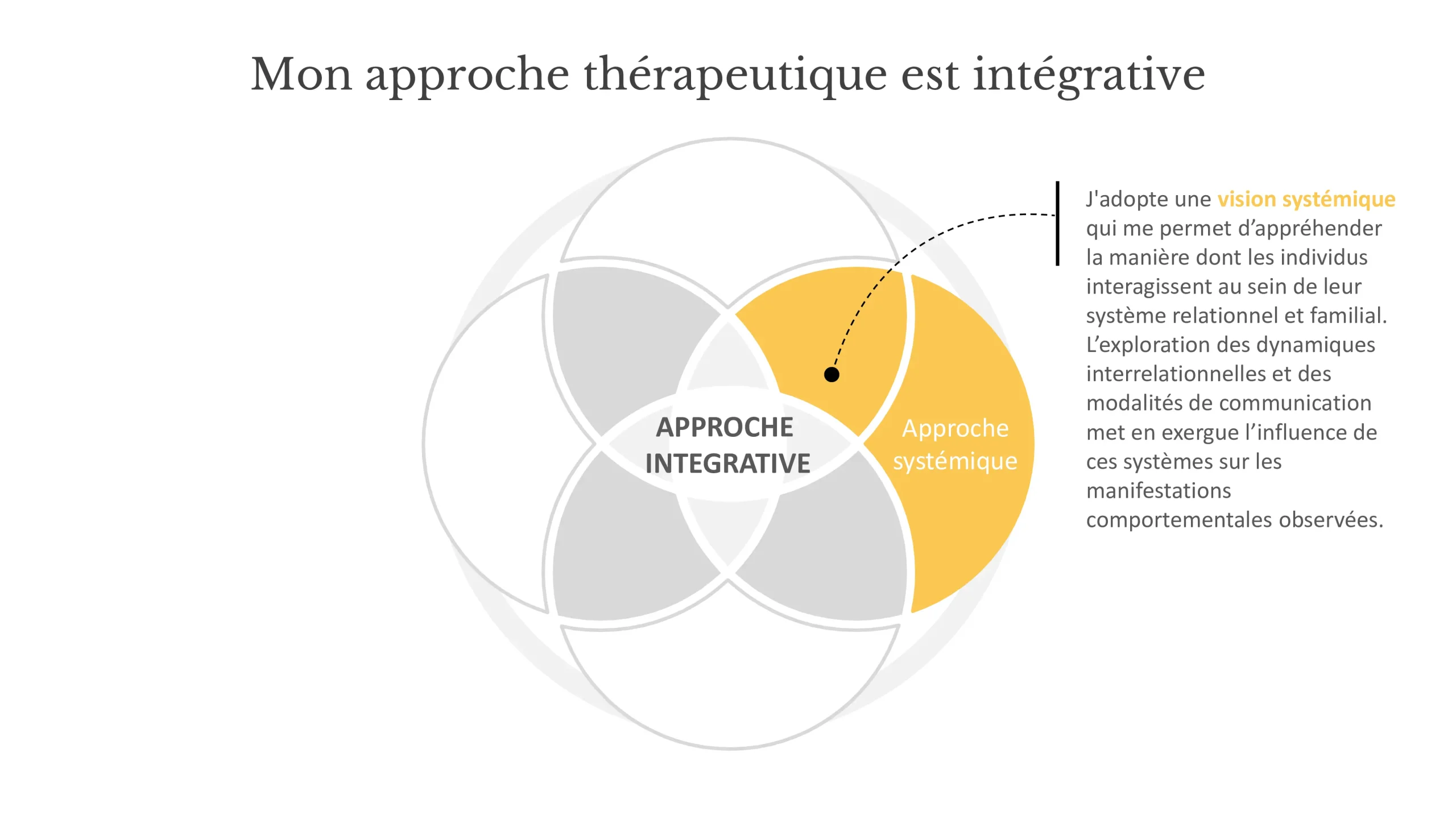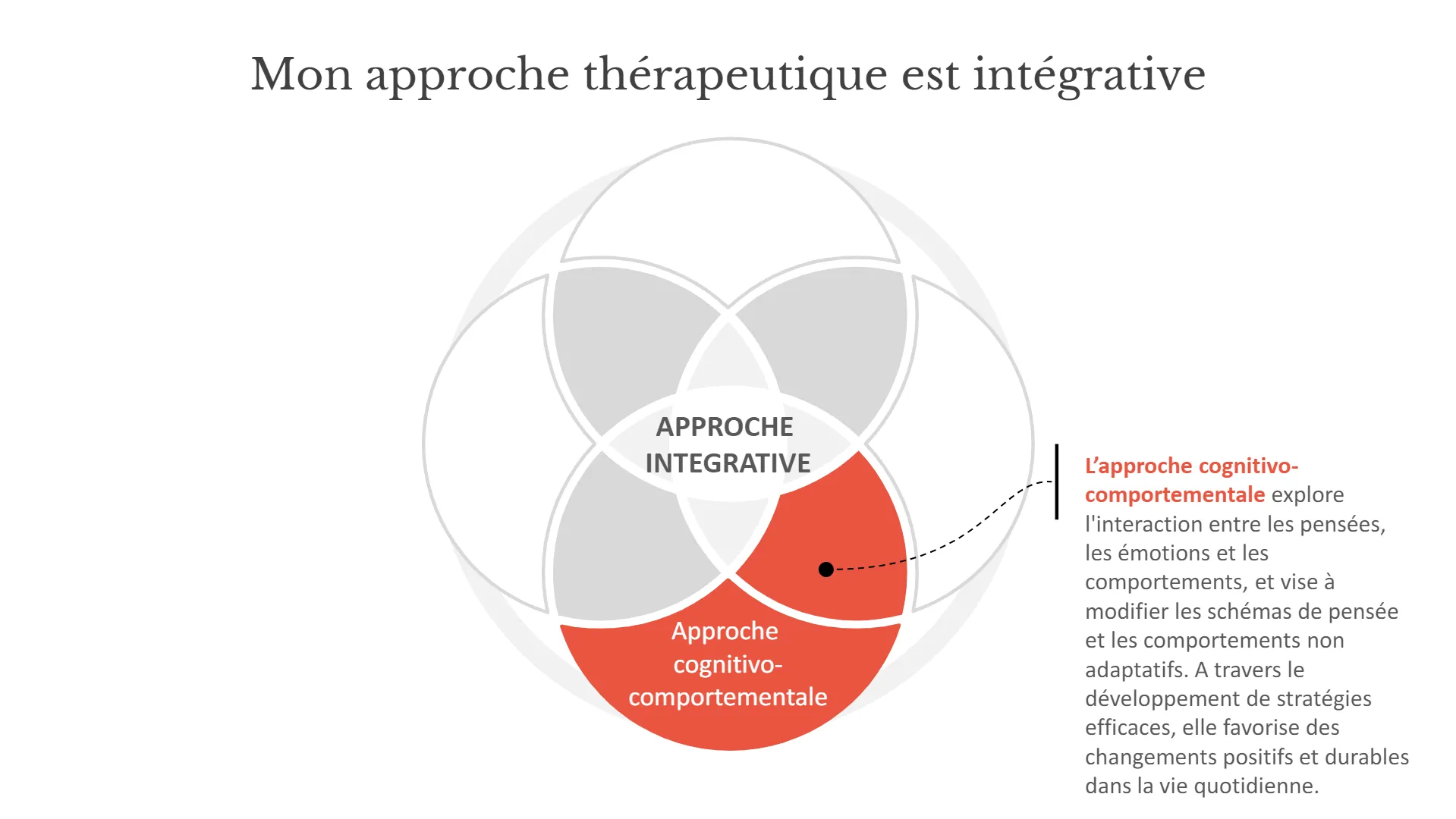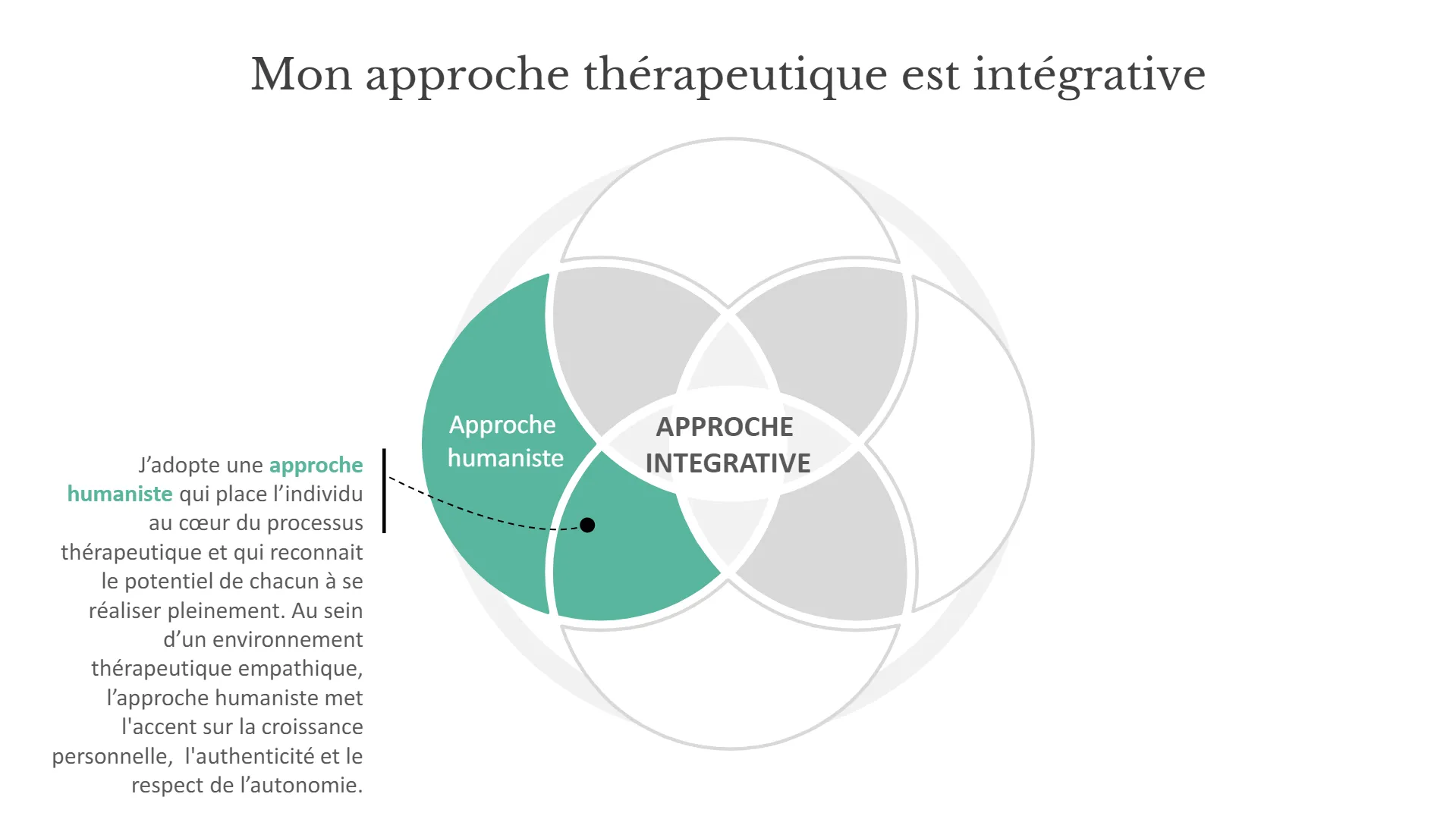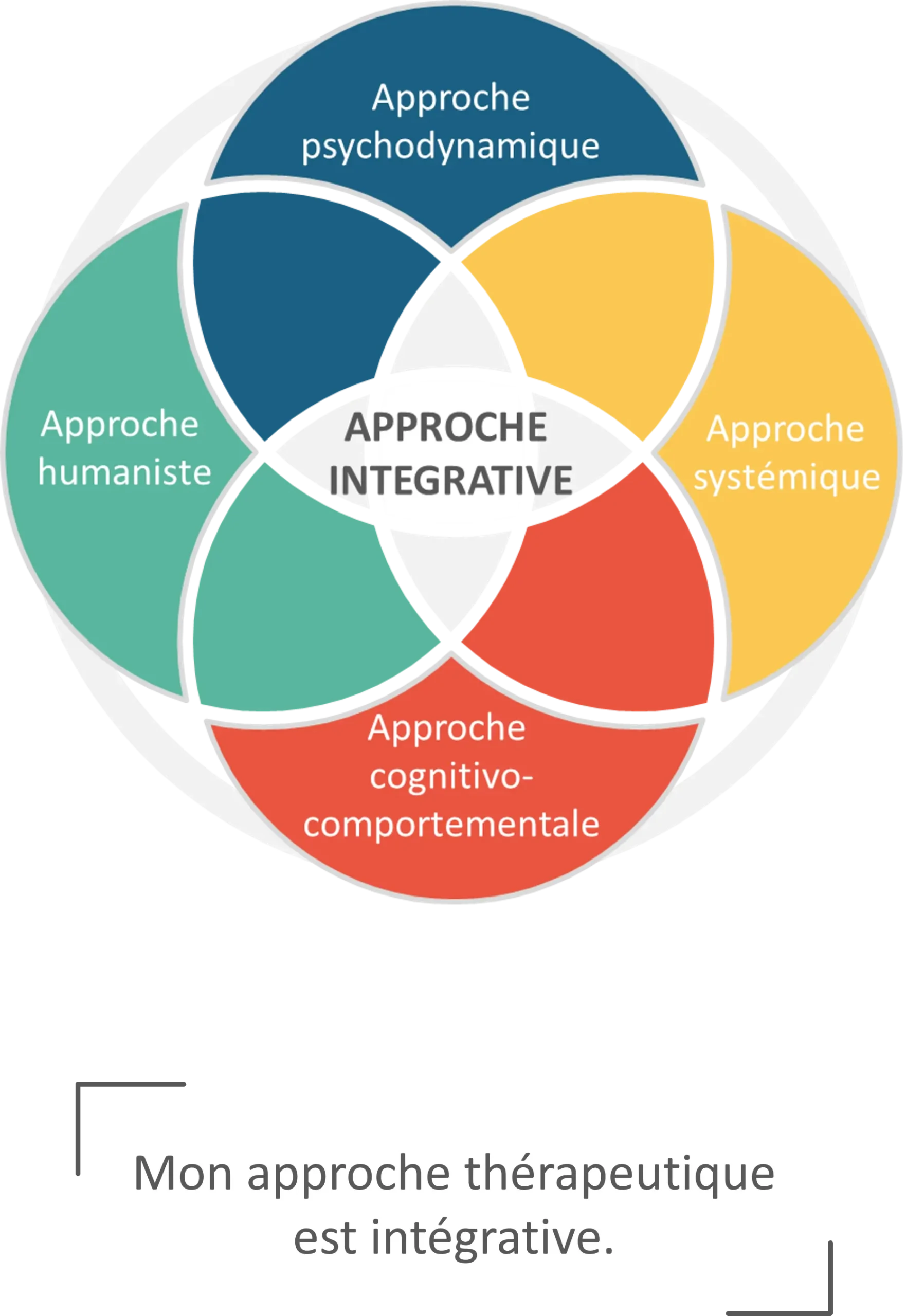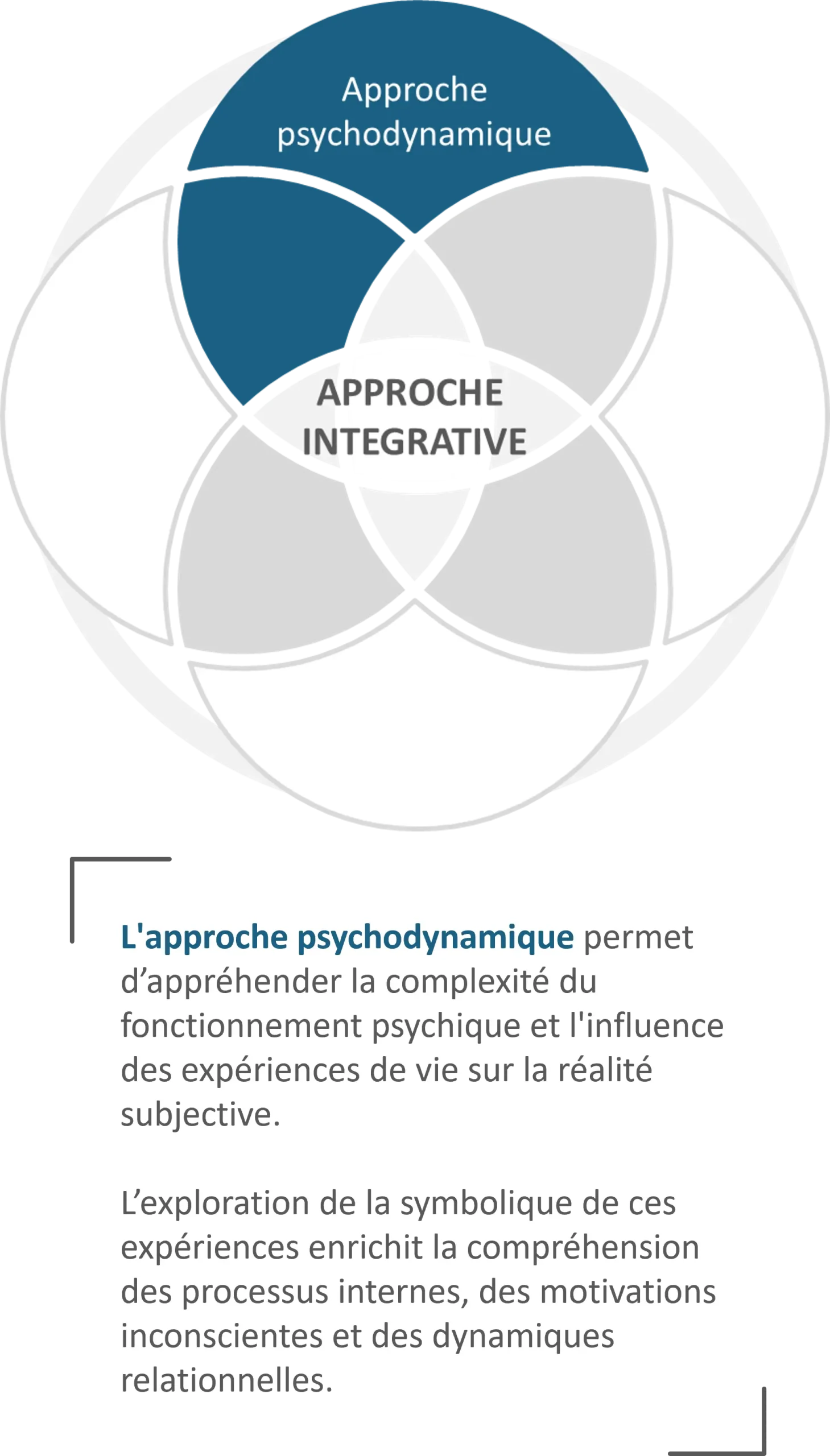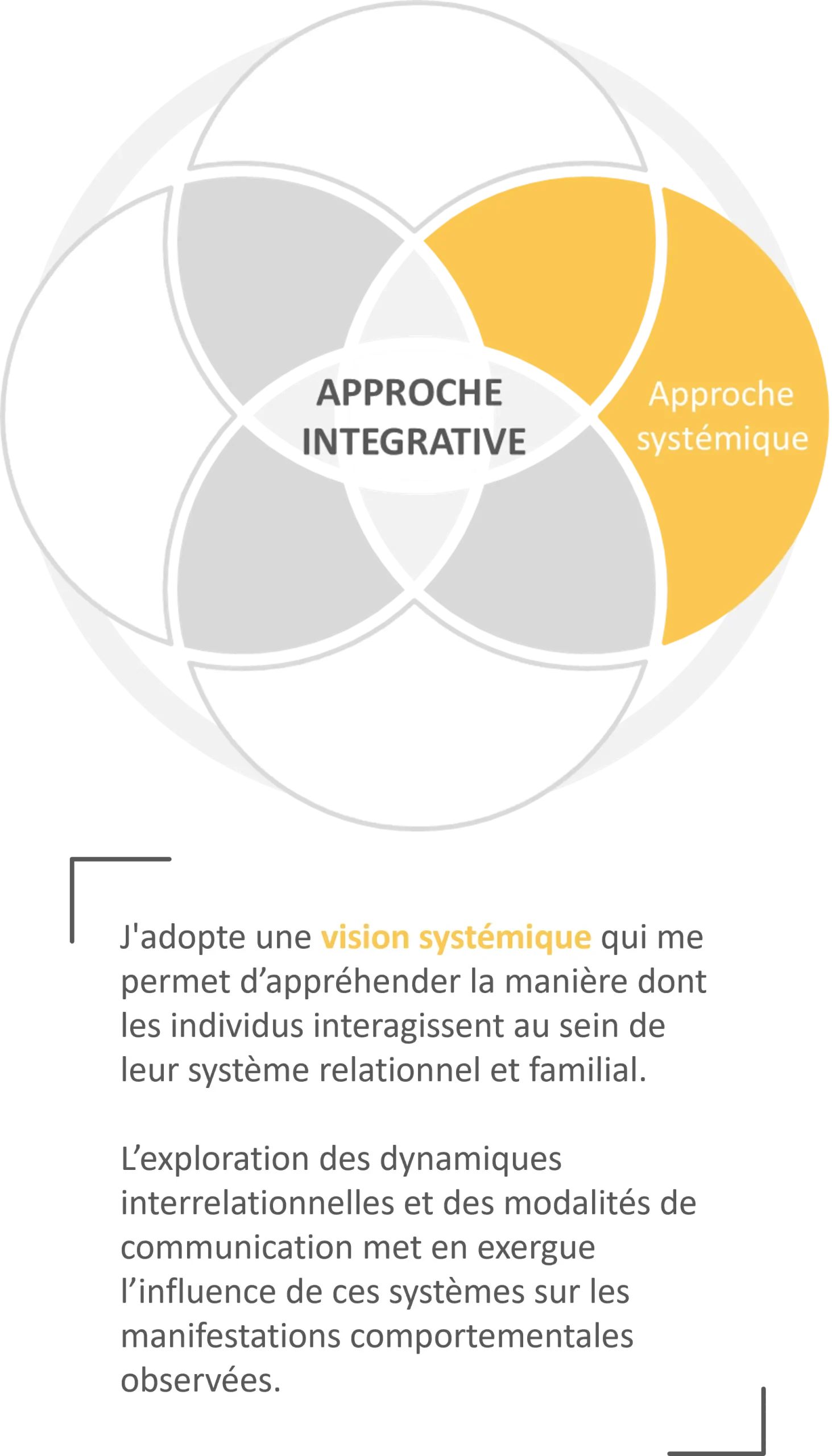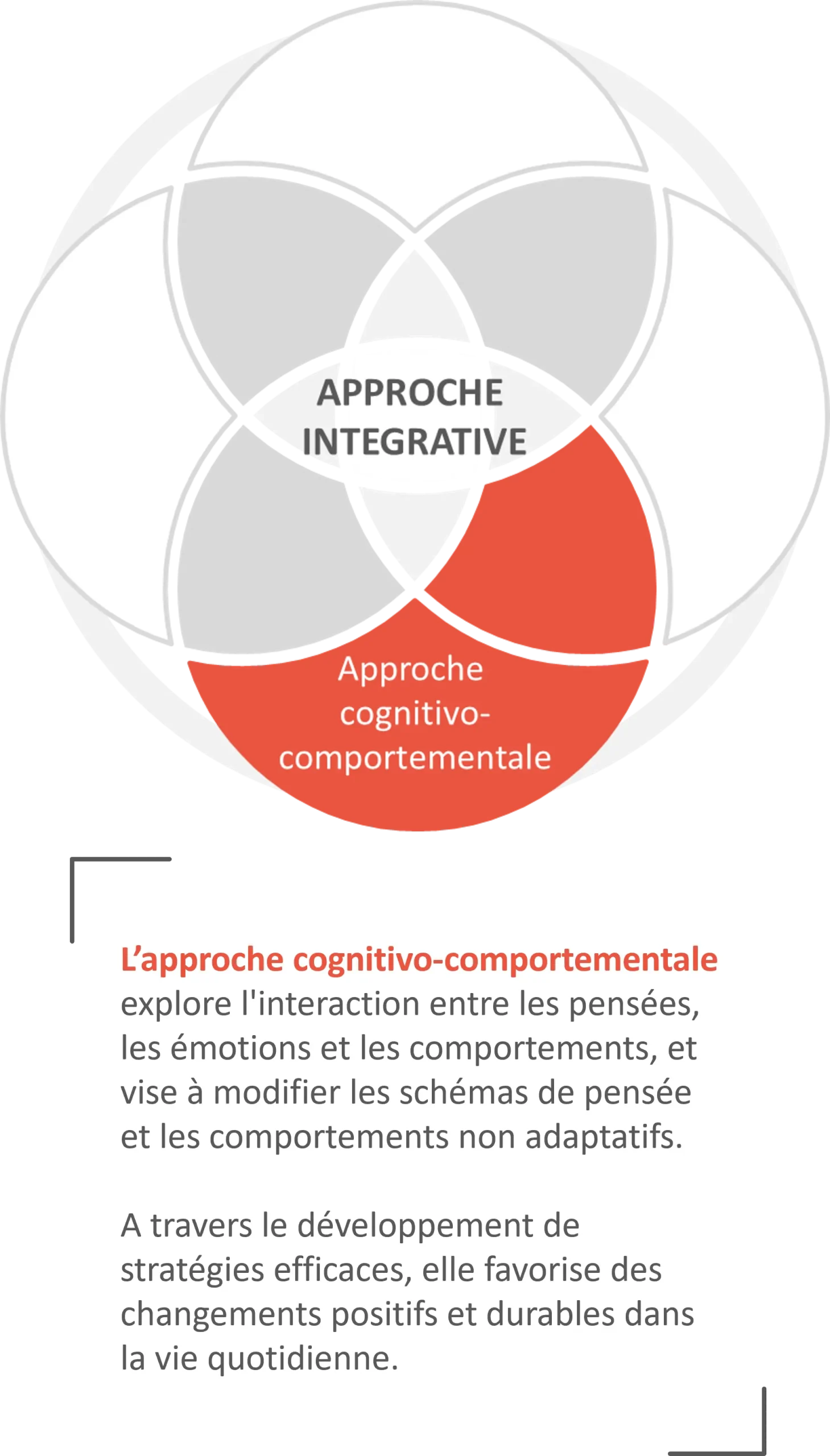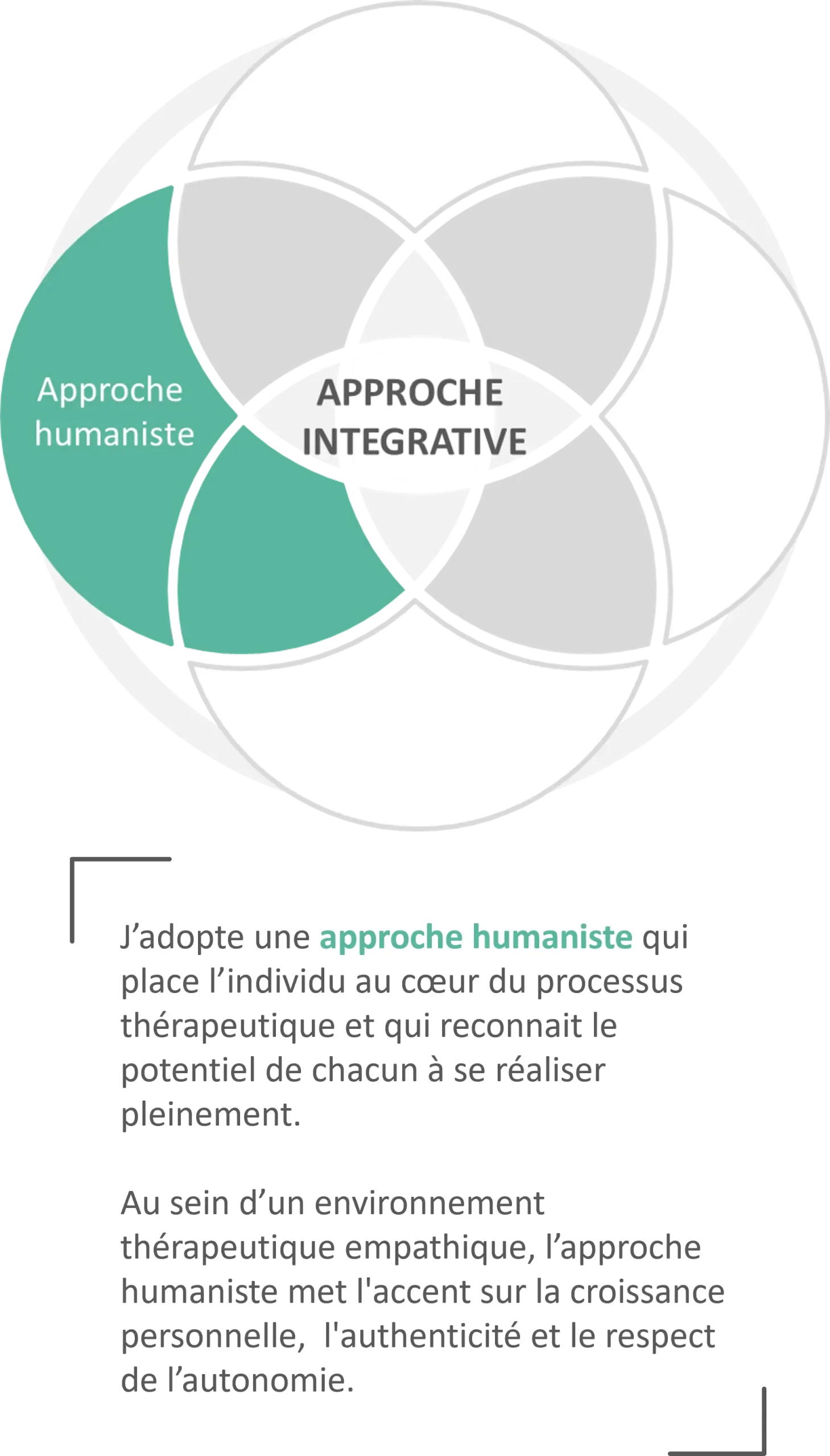Integrative therapy is at the core of my therapeutic identity. It combines traditional and contemporary approaches, with tools and methods carefully selected to meet each individual’s needs. This flexible and adaptive approach allows for personalized interventions, aligning with the diversity of life experiences and the challenges faced.
Integrative Therapy
Tools and methods tailored to each individual's uniqueness.
Integrative Therapy - Definition

The 3 Key Stages of Integrative Therapy

1. Introspection and Self-Awareness
Introspection and self-awareness are key elements in the search for meaning. Through deep personal reflection, we can gain a clearer understanding of our values, motivations, and aspirations. This process clarifies life goals, strengthens identity, and helps one find a place in society that aligns with personal convictions, ultimately leading to a more fulfilling and authentic life.
2. Cognitive and Behavioral Restructuring
Restructuring work focuses on deconstructing dysfunctional thoughts and behaviors using cognitive-behavioral techniques. It involves evaluating the validity of thoughts or beliefs and challenging maladaptive behaviors. Replacing these with healthy routines and habits fosters psychological and emotional balance.


3. Emotion Management
My areas of intervention in integrative therapy
Self and interpersonal relations
Relationship
Establishing relationships involves personal investment and often taking risks in choosing the people we welcome into our lives. Essential to human beings, who are inherently social creatures, interpersonal relationships reflect our ability to question ourselves, our resilience, and also what we believe we deserve.
Self-confidence
Self-confidence stems from an awareness of one's own abilities and resilience in the face of life's challenges. Integrative therapy can help strengthen this confidence by guiding the exploration of one's capabilities and their confrontation with reality, thereby fostering their development.
Self-reflection
Questioning our thoughts, beliefs, and behaviors demonstrates intellectual maturity. In the Jungian approach, individuation requires this self-questioning to confront and integrate our complexes, thus promoting personal growth and better adaptability.
Culpabilité
Guilt is a complex emotion that can take different forms. It can be healthy, guiding our actions toward respecting our values, respecting others, and adhering to social norms. However, it can also be pathological, potentially indicating a mental disorder such as depression, and often leading to excessive self-blame.
Psychological distress
Anxiety
Anxiety is a normal bodily reaction to the unpredictability of a situation. However, when anxiety becomes excessive, persistent, and interferes with daily life, it can become problematic. Therapeutic techniques such as cognitive restructuring, gradual exposure, and relaxation can help manage anxiety more effectively.
Depression
Depression is a mental disorder characterized by both a psychological slowdown (memory issues, concentration problems, difficulty thinking clearly, and making decisions) and a motor slowdown (reduced energy and motivation, persistent fatigue, slow movements), which can impact daily activities. The diagnosis of depressive disorder must be made by a recognized mental health professional.
Burnout
Overwork and burnout are characterized by physical and mental exhaustion that can occur when taking on too many responsibilities without the necessary resources or support. To prevent burnout, it is essential to know your limits, set realistic goals, ensure a balance between work and rest, and find meaning in your work. Psychotherapy explores the underlying causes and supports the individual in redefining their relationship with work.
Alexithymia
The difficulty in distinguishing and verbalizing emotions, or alexithymia, is a risk factor for various mental disorders such as depression, addictions, post-traumatic stress states, as well as anxiety and psychosomatic disorders. In integrative therapy, approaches such as mindfulness and psychoeducation can help individuals better identify and express their emotions.
Psychosocial skills
Stress management
Stress management involves effective coping strategies. Acute stress prompts preparation to face the event, while chronic stress requires a thorough analysis of the sources of stress. Cognitive-behavioral therapy (CBT), writing, and self-reflection help clarify, plan, and organize daily life, thereby fostering a sense of control and lasting psychological balance.
Decision-making
Decision-making relies on the ability to evaluate options with clarity and discernment, and to weigh the consequences of each choice. In integrative therapy, decision-making can be approached through methods such as cognitive therapy. Regardless of the technique used, decision-making must be aligned with one's core values.
Communication
Effective communication involves thoughtful, structured, authentic, and clear expression in exchanges, as well as active listening. Honesty and precision are essential for establishing healthy relationships and resolving conflicts. CBT and transactional analysis are commonly used in psychotherapy to improve communication skills.
Emotion regulation
Recognizing, understanding, and regulating emotions is essential. Writing, self-reflection, behavioral therapy, and schema therapy are commonly employed tools to enhance emotional regulation and develop appropriate coping strategies.
FAQ
Integrative therapy: what is it?
Integrative therapy is an approach that blends different psychotherapeutic methods and techniques to better meet the individual needs of patients. It may incorporate elements from cognitive-behavioral therapy, psychodynamic therapy, systemic therapy, and other psychotherapeutic practices. The goal is to address psychological issues holistically by using the most suitable interventions for each patient.
How does integrative therapy differ from other forms of psychotherapy?
What therapeutic approaches are used in integrative therapy?
This largely depends on the therapist's area of expertise and therapeutic style. Techniques employed can vary widely but often include tools from cognitive-behavioral therapy, psychodynamic approach, systemic approach, and existential therapy. Therapists tailor the tools used according to the presenting issues.
Quels problèmes la thérapie intégrative peut-elle aider à traiter ?
This therapeutic approach is effective for treating various mental health disorders, including depression and mood disorders, anxiety, addictionseating disorders such as bulimia, post-traumatic stress disorder, and personality disorders (Clarke et al., 2018 ; Masley et al., 2011 ; Zarbo et al., 2021). Broadly, it can also benefit individuals needing general psychological support or struggling with issues related to traumatic experiences.
How do I know if integrative therapy is right for me?
If you are seeking a flexible, personalized, and holistic approach that integrates different therapeutic techniques, integrative therapy could be a suitable option for you. An initial consultation with a psychologist or psychotherapist will help assess if this approach aligns with your expectations and treatment goals. For more information and to schedule an initial appointment, please visit the Contact & Pricing webpage.


